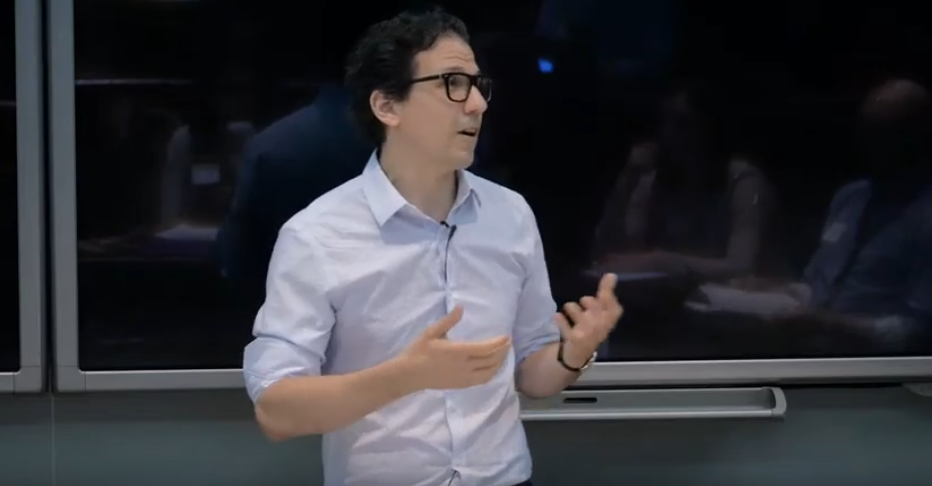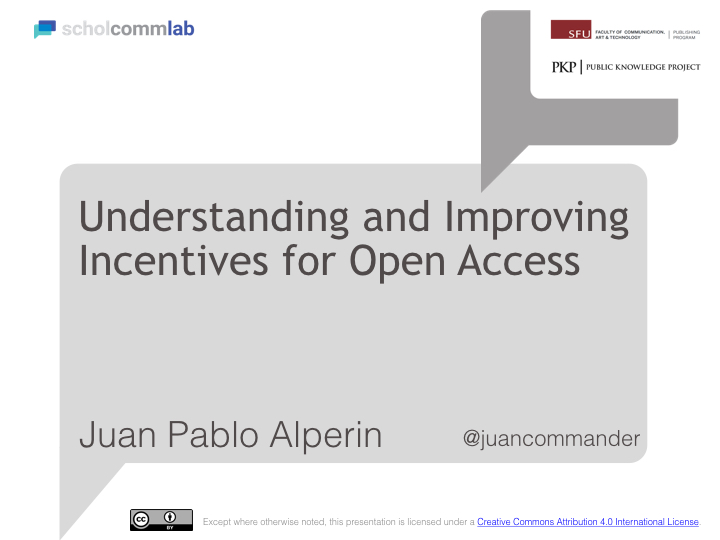
By Mario Malički and Juan Pablo Alperin This blog post is inspired by our four part series documenting the methodological […]

By Mario Malički and Juan Pablo Alperin This blog post is inspired by our four part series documenting the methodological […]

Stefanie Haustein was scrolling through her feed when she stumbled on it. A tweet from eLife Innovation promoting a program called “Open Innovation Leaders.” It promised design thinking, open communications, and sustainability—all with only a two hour per week time commitment. Intrigued, she clicked through. Three months later, Stefanie is five weeks deep into what is fast becoming a favourite part of her work week.

This slideshow requires JavaScript. “It all started with a pang of jealousy,” says Asura Enkhbayar when asked what inspired him to start Open Science Beers YVR. Stefanie Haustein had pointed out that Montreal hosted a regular open science meetup every Wednesday. But Vancouver, Asura realized, had nothing of the sort.

K eynote presented by Juan Pablo Alperin for Open Education 2019: Transforming Teaching & Learning at SFU on May 27, 2019. Overview Introduction Public purpose of higher education Why do I practice Open Pedagogy? Student feedback on Open Pedagogy

Keynote presented by Juan Pablo Alperin at the first United Nations Open Science Conference on November 19, 2019, organized by the UN Dag Hammarskjöld Library and the Scholarly Publishing and Academic Resources Coalition ( SPARC ). Good morning. It is a true honour to be here and have an opportunity to share with you my thoughts on policies and incentives for open science.

This blog is cross-posted from ASAPbio and reused under CC-BY 4.0 license.

Keynote presented by Juan Pablo Alperin at Atla Annual on June 13, 2019 . Overview Introduction The case for open access Barriers to open access The role of incentives What do we know about incentives? The review, promotion, and tenure project Digging into open access Digging into the impact factor Who creates these documents? Summarizing

Keynote presented by Juan Pablo Alperin at FSCI on August 9, 2019. Overview Introduction The case for open access Barriers to open access The role of incentives What do we know about incentives? The Review, Promotion, and Tenure project Digging further into open access What do the RPT documents ask for? What are we to make of all this?

It’s been a busy November for the ScholCommLab! This month, lab members took part in three conferences: the Canadian Science Policy Conference in Ottawa, the United Nations Open Science Conference, and the PKP 2019 International Scholarly Publishing Conference in Barcelona. For those who couldn’t make it, we’re sharing highlights from each event, right here on the blog.

By Mario Malički, Maria Janina Sarol, and Juan Pablo Alperin This blog post is the last of a four part series documenting the methodological challenges we faced during our project investigating preprint growth and uptake.

This week marks the 10 year anniversary of Open Access Week—a global event that strives “to make Open Access a new norm in scholarship and research.” In celebration of this momentous occasion, the University of Ottawa Library asked ScholCommLab co-director Stefanie Haustein about recent trends in open access and scholarly communication.